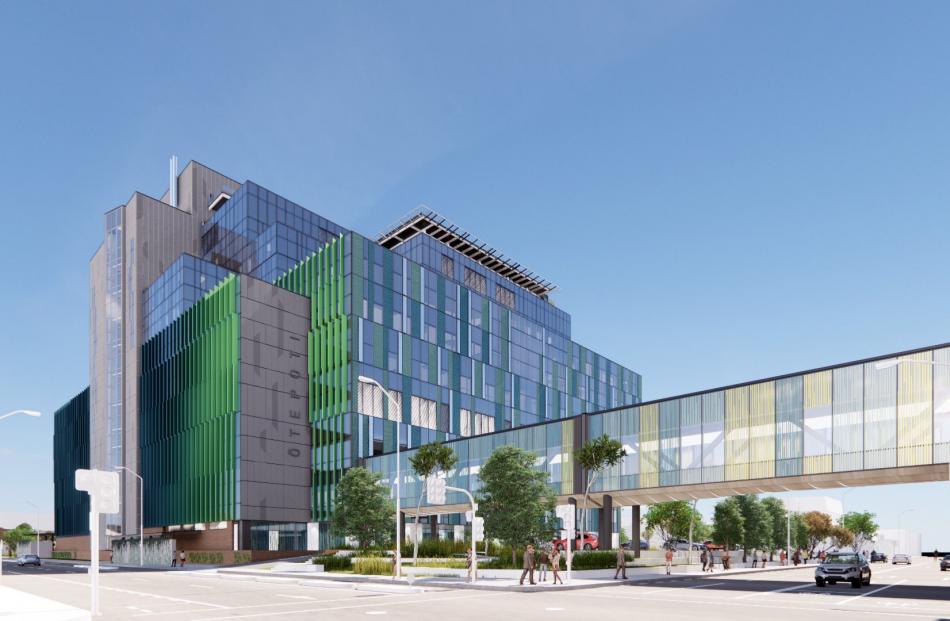
But there are some promises that linger in the mind and foster resentment if they are not fulfilled. National’s pledge in July last year of a $30 million plan to reinstate most of the proposed cuts to the Dunedin Hospital project is one.
On a freezing cold day, now Prime Minister Christopher Luxon stood opposite the hospital building site and said it would "deliver all the beds, operating theatres and radiology services that Labour removed" from the detailed business case for the inpatient block.
At a cost of $29.5 million, that meant reinstatement of 23 inpatient beds, two operating theatres and a PET scanner.
National’s move forced the then Labour government into a backtrack on money saving measures on the $1.4 billion project, and seemingly meant that the community could breath a little easier.
Or maybe not, after Minister of Health Dr Shane Reti’s less than ringing rhetoric when asked by the ODT earlier this week if the new government would honour National’s election pledge.
While "I will be having further discussions with officials from Health New Zealand and my ministerial colleagues on new Dunedin Hospital and other key health infrastructure projects under way in the coming weeks," does not say "no", nor does it say "yes".
The people of Dunedin — and the wider Otago and Southland provinces, whose residents are also served by the hospital — are not backward in rallying to preserve health services in the South. Mr Luxon and Dr Reti were not in politics when the Otago Daily Times helped lead a vigorous community campaign which succeeded in retaining neurosurgical services in the South (although they once had a Dunedin-based list MP colleague who could have told them all about it) .
But they will have been well aware of the paper’s similar campaign last year, alongside the Dunedin City Council, to reverse Labour’s proposed cuts to the project — after all, it was largely in response to that campaign that National made its pledge.
New Zealand First and Act New Zealand made similar promises that the hospital would be built to the standards and specifications as originally promised to the people of Otago and Southland.

But now the dust has settled post-election, and the new government has full access to the hospital project’s budget projections. Have the revelations contained within inspired some equivocation from the new health minister?
This project has been down the path of "discussions" before — in July 2022 former Health Minister Andrew Little asked officials to re-examine the budget for the new hospital to mitigate the risk of cost escalation on a project which had already had its budget hiked twice by that stage.
That exercise led the government down the path of finding its infamous $80m worth of savings, the cuts which were so rigorously opposed by the community and which National vowed to reverse.
"The South deserves a hospital that will be fit for purpose for generations, not a patch up job," then local list MP Michael Woodhouse said in July.
“The previous National Government committed to delivering the hospital that people in the South needed, and we will follow through with that promise."
We completely agree with Mr Woodhouse’s first sentence, although he will not be there to put his colleagues feet to the flames to ensure promises are kept.
Maybe their promises will be kept, maybe this is just jumping at shadows. But this project has gone down this road before. Hence, it should come as no surprise that when Dr Reti said plans for pathology services for the new building would require "a separate business case" that the alarm bells, if not actually ringing, are at least ready to be switched on.
Added to that, Finance Minister Nicola Willis’ pre-Christmas mini Budget contained news that all major capital projects at risk of cost blowouts were to be identified so that they could be closely managed, and that a "health check" was to be carried out on all medium and high-risk projects.
The new Dunedin Hospital likely presented to Cabinet with exactly those monetary symptoms, and while fiscal rectitude is essential, so is a hospital appropriate to the South’s needs.
And we will keep pressuring the government, no matter which parties make it up, until the South gets exactly that.












